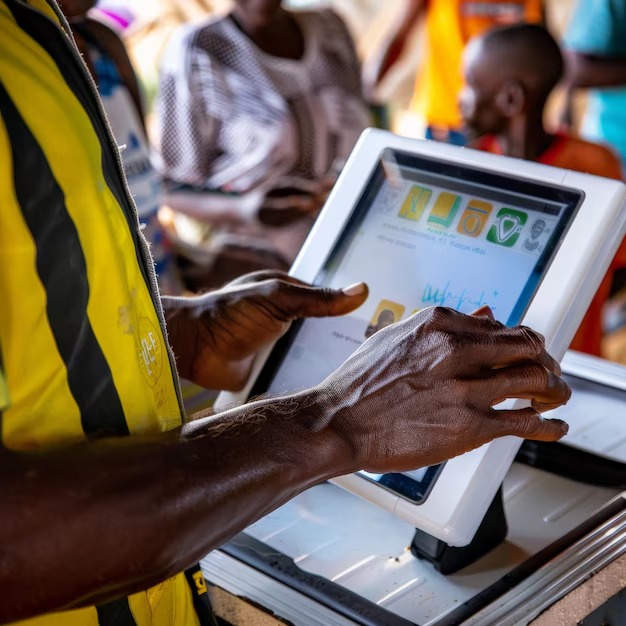
Public procurement refers to the acquisition of goods and services by various public entities, which must be conducted by designated procurement entities. According to section 98 of the Public Procurement Act, 2003 Act 663 (hereinafter the “Act”), a procurement entity is any public body officially declared by the Minister of Finance in consultation with the Public Procurement Board (the “Board”) through a gazette. Only entities that meet these criteria can be recognised as procurement entities.
Under the Act, procurement entities are required to procure goods and services through competitive tendering, unless specific conditions allow for alternative methods as prescribed by the Act. In cases where an alternative procurement method is used, the procurement entity must obtain approval from the Board, clearly outlining the grounds justifying the deviation from competitive tendering. Below is an overview of these procurement processes.
The Competitive Tendering procurement process detailed in Part 5 of the Act, commences with a tender invitation published in the public procurement bulletin and two national newspapers. Interested parties can obtain tender documents for a fee. A defined timeline is established for tender submission, which can be extended by the procurement entity, provided written notice is given at least ten (10) days before the expiration of the timeline.
Tenders must be submitted in writing, signed, and sealed securely, or alternatively in a manner specified in the tender documents that provides a record to the contents of the tender and a similar degree of authenticity, security and confidentiality. The tenders, after the close of invitation shall be examined and the accepted tenders will be evaluated.
A tender shall be disqualified if the tenderer is not qualified. The qualifications, as outlined in Section 22 of the Act, encompass professional competence, financial stability, legal capacity, tax compliance, and other pertinent criteria. If a tenderer does not fulfil these prerequisites, disqualification is inevitable.
Section 22 of the Act provides the following;
a) A tenderer in public procurement shall possess the necessary professional and technical qualifications and competence, financial resources, equipment and other physical facilities, managerial capability, reliability, experience in the procurement object and reputation and the personnel to perform the procurement contract;
b) A tenderer must have the legal capacity to enter the contract, be solvent, not be in receivership, bankrupt or in the process of being wound up, not have its business activities suspended and not be the subject of legal proceedings that would materially affect its capacity to enter into a contract;
c) The tenderer is required to have fulfilled its obligations to pay taxes and social security contributions and have paid the compensation due for damage caused to property by pollution where applicable;
d) The directors or officers of a tendering company must not have been convicted of a criminal offence related to professional conduct or making false statements about their qualifications for a procurement contract within ten (10) years before the procurement proceedings. They should not have been disqualified due to administrative suspension or disbarment proceedings in any country. They must also meet any other criteria deemed appropriate by the procurement entity;
e) The Tenderer shall not submit a document containing false information for purposes of qualification; and
f) The procurement entity may disqualify a candidate if it finds at any time that the information submitted concerning the qualifications of the candidate was materially inaccurate or materially incomplete.
A Tender shall also be disqualified if the tenderer that submitted the tender does not accept a correction of an arithmetical error, if the tender fails to conform with the requirements set out in the tender invitation documents, or where there is evidence of inducement on the side of the tenderer. Successful tenders are thereafter evaluated and compared, with the one offering the lowest bid, as per Section 59, being accepted. The procurement entity notifies the winning tenderer within thirty (30) days of acceptance. If a written procurement contract is necessary, it should be signed within thirty (30) days of the acceptance notice. Failure to comply within the stipulated time frame results in the procurement entity selecting an alternative tender from the remaining valid options, as per the provisions of the Act.
The alternative methods prescribed by the Public Procurement Act include:
a) Two-Stage Tendering Under Sections 36-37 of the Act: This method applies to situations where it is not feasible for a procurement entity to formulate detailed specifications for the goods or works. It also applies to situations where the character of the goods or works is subject to rapid technological advancement.
The process begins with the procurement entity issuing an invitation for suppliers or contractors to submit initial tenders that include their proposals without a tender price. Qualified suppliers or contractors may engage in negotiations with the procurement entity regarding any aspect of their submitted tenders. In the second stage, the procurement entity requests final tenders, including prices based on a unified set of specifications. These final tenders are evaluated and compared, after which the most suitable tender is selected.
b) Request for Quotation Under Sections 42- 43 of the Act: This may apply in readily available goods, works, or technical services that are not specially produced or provided to the particular specifications of the procurement entity. It also applies to goods where there is an established market, if the estimated value of the procurement is less than Two Hundred Million Ghana Cedis (GHS 200,000,000).
The procurement process for this method begins with the procurement entity requesting quotations from as many suppliers or contractors as practicable, but from at least three different sources. Each supplier or contractor from whom a quotation is requested shall be informed whether any elements, apart from the charges for the goods or services themselves, such as transportation and insurance charges, customs duties and taxes, are to be included in the price. Each supplier or contractor shall only give one price quotation and shall not change its quotation.
No negotiations shall take place between the procurement entity and a supplier or contractor with respect to a quotation submitted by the supplier or contractor, prior to the evaluation of bids submitted.
c) Single Source Procurement Under Sections 40-41: This method applies to a situation where there is no alternative or substitute for the goods, works or services being procured or where there is an urgent need for these goods, works or services. It also applies to research, experiment, study, or development. In the situation of national security procurement, the single source method is also applied.
Single source is also employed in situations where procurement from a particular supplier or contractor is necessary to promote a policy concerning the following where procurement from another supplier or contractor cannot promote such policy;
i. the balance of payments position and foreign exchange reserves of the country;
ii. the countertrade arrangements offered by suppliers or contractors
iii. the extent of local content, including manufacturer, labour and materials, in goods, works or services being offered by suppliers or contractors;
iv. the economic-development potential offered by tenders, including domestic investment or other business activity;
v. the encouragement of employment, the reservation of certain production for domestic suppliers;
vi. the transfer of technology; and
vii. the development of managerial, scientific and operational skills.
d) Restricted Tendering per section 38: This may for reasons of economy and efficiency and subject to the approval of the board apply where goods, works or services are available only from a limited number of suppliers or contractors or if the time and cost required to examine and evaluate a large number of tenders is disproportionate to the value of the goods, works or services to be procured. Where a procurement entity engages in restricted tendering on the grounds referred to in section 38, the Procurement entity it shall invite tenders from the suppliers and contractors who can provide the goods, works or services and select in a non-discriminatory manner, a number of suppliers or contractors to ensure effective competition
The Act provides a comprehensive legal framework to ensure transparency, fairness, and competitiveness in the procurement of goods, services, and works by public entities. Competitive tendering remains the primary method, promoting open competition and value for money. However, the Act acknowledges the need for flexibility by incorporating alternative procurement methods such as two-stage tendering, request for quotation, single-source procurement, and restricted tendering. Each of these alternatives is designed to address specific procurement needs and circumstances, ensuring that the process is adaptable while maintaining accountability.


